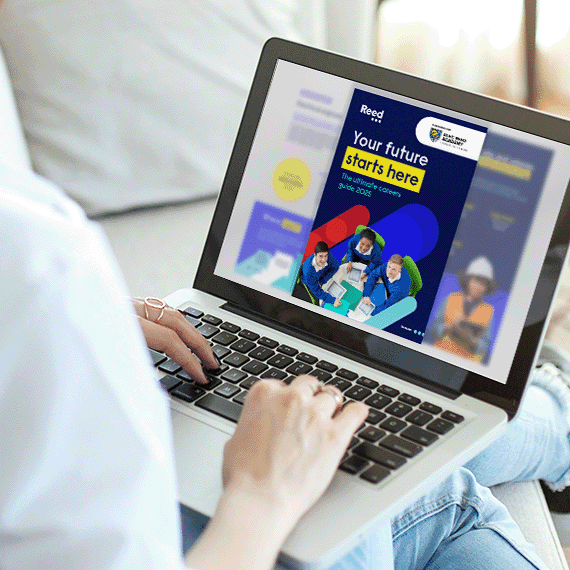Why is career advice more important than ever?
The Covid-19 pandemic caused massive disruption to young people and their education. School closures meant students were isolated from their teachers and peers, and without the face-to-face interaction, many fell behind on their education. Although we have now come through the other side of the pandemic, many students feel disengaged and pessimistic about their futures.
According to a report by the Co-op, 26% of 13- 25-year-olds said the pandemic has ruined their career dreams, and 60% think their generation will be permanently disadvantaged. From the results of the study, in which 5,000 children and young people were surveyed, it’s clear that pupils need support with their future career prospects now more than ever.
How effective is the current careers curriculum?
Information, advice, and guidance (IAG) in schools aims to raise young people’s aspirations, giving them skills and knowledge for a successful transition into adult life. However, according to research by the Department for Education, 90% of the IAG 18–19-year-olds receive comes from family or friends, and children aged 13-14 found the IAG received from their family to be more useful than the IAG they received from teachers.
This shows just how essential it is for schools to prioritise their careers guidance. Having a structured careers programme deeply embedded into your school’s curriculum, that shows students the wide variety of opportunities available to them, and starts as early as possible, is key. But for many schools, finding quality careers education resources is a challenge, and many even leave it too late to introduce it.
We spoke to Phil Cosby, Principal and CEO of Alec Reed Academy, to get his thoughts on careers advice in schools, from the importance of starting early, how to embed a careers programme into your school, and how Reed’s free student careers guide can empower teachers to deliver effective careers education.
Watch the full interview with Phil or read the transcribed interview below:

Q: Why is career advice important in schools?
A: It’s a key thing for success because the students need to be employable by the end of their time in education. That’s going to be so important to their success as an adult and their personal worth and value in life. And of course, we’re very focused on mental health in schools. So, we want those students to be successful, and to be successful, they need to really fully understand the opportunities that are available to them and understand more clearly about what they need to be to be employable. And those skills are a key part of our curriculum, our wider curriculum, not just taught in the obvious subjects: maths/English, but beyond those main subjects into the wider curriculum to ensure that they’re as prepared as possible for later life.
Q: How do you think Reed’s career guide will help students?
A: It’ll form part of our curriculum and be delivered by our staff on a rolling basis through the different year groups. And it will be a resource that our staff rely on in order to motivate and engage the children and give them a very clear indication of what career paths are out there, so that when they travel through taking their GCSEs, it can be very much a part of the discussion tool on their results day, about what opportunities are in front of them. And it can also ensure that when they do go to interview, they’ll have been developed and given the tools to be more successful.
Q: How do you think this guide will help schools?
A: I think schools will be pleased that it’s available because as I say, there’s just a shortage of resources out there. You’re so reliant on one or two potential areas that you can tap into, where this should provide a platform to enable all schools that use the resource to really embed their careers education fully into their daily curriculum and ensure that all the students leave school and are happy and content and gain employability whether that be at 18 or beyond.
Q: How can schools make the most of the guide?
A: It’s got to be embedded fully into the curriculum that runs through the school from year seven. We’re fortunate that we’ve got an even younger section, so we’re even thinking about using it in our primary. But it’s got to be part of our expectations of staff, through our PSHE programme, through our form periods, to really tie the children in to fully understanding what life is like post-school and ensuring that they are able to access that type of employment that they have desired and have driven for from those early ages, right through to the completion of the courses that they’ve started.
Q: When should students start to think about their career options?
A: I think the earlier the better. Historically, it’s always waited too late, to year 10, 11, or even into post-16 or sixth form. So, it’s really important that it moves into key stage three so that in year seven and eight and year nine, they’re already thinking about potential pathways for education and where they might want to be in terms of a long-term career.
Reed’s free careers guide for school leavers gives you all the tools you need to deliver effective careers guidance. It has all the information students need to make an informed decision about their future, from the different routes to employment, jobs they can do after leaving school, and the salaries they can expect to earn.
Download the guide and get a free promotional pack for your school.





